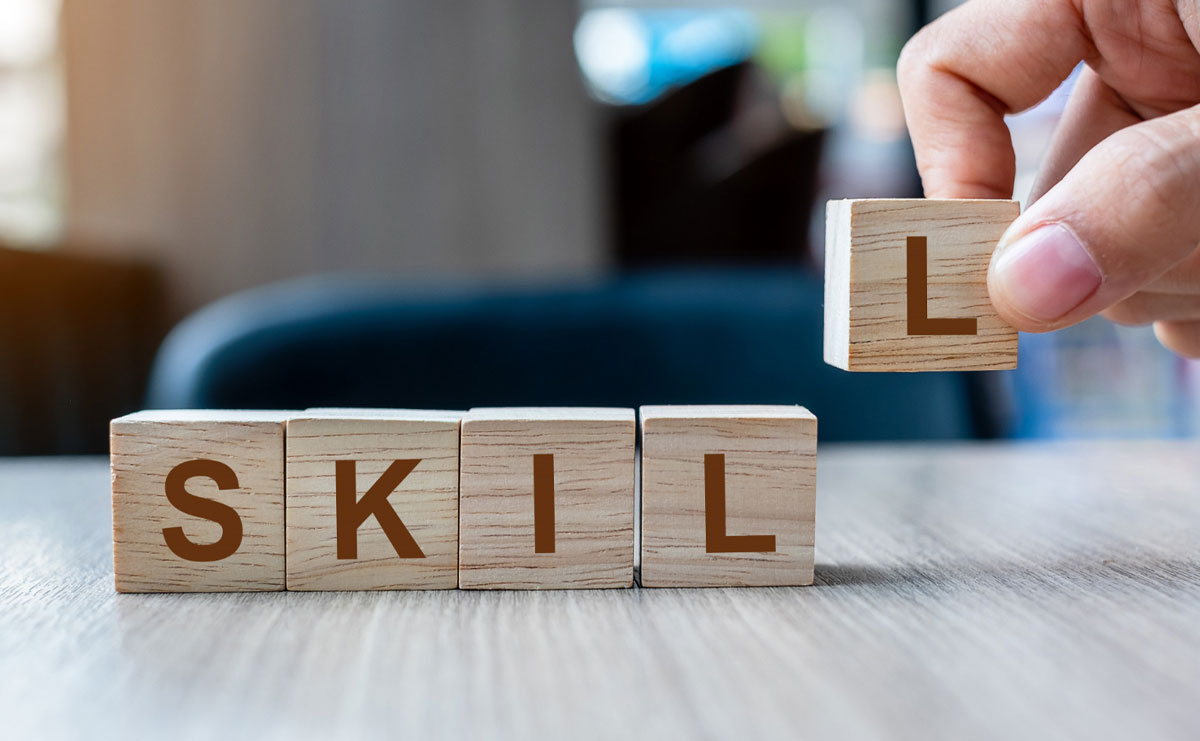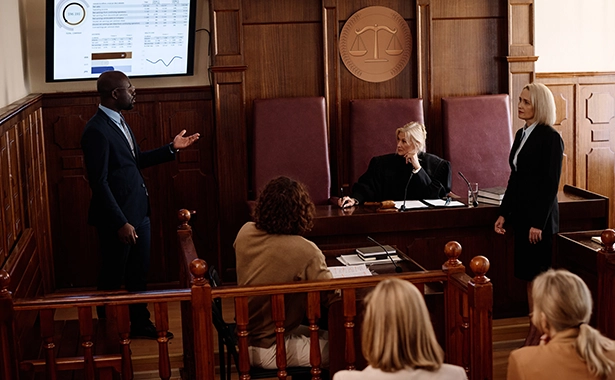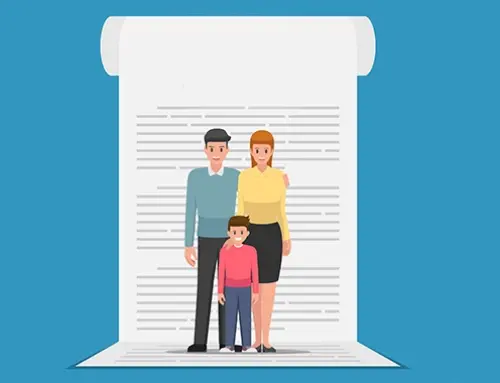Contents
The Must-Have Legal Skill Set Every Lawyer Needs in 2025
The legal profession in 2025 is evolving faster than ever. Rapid technological advances and the normalization of hybrid work models have transformed how lawyers practice and deliver services. For today’s legal professionals, it is “sink or swim” – traditional expertise alone is no longer enough, and one must continuously upgrade their skill set to stay afloat.
This article explores the skills needed to be a lawyer in the modern era, emphasizing the necessity of continuous skill development. We break down the must-have skills lawyers need in 2025 into three key categories: traditional legal skills, technological competencies, and interpersonal (soft) skills.. Along the way, we address emerging trends – from AI in law and remote litigation to digital research, cybersecurity, and client communication in a hybrid world – reshaping these skill requirements.
Traditional Legal Skills Needed to Be a Lawyer
Even amid rapid change, foundational legal skills lawyers need remain vital. These core competencies form the bedrock of effective lawyering and are now exercised in an increasingly modern context:
I. Legal Research and Analytical Reasoning
The ability to research law and analyze complex issues is the starting point of competent practice. Lawyers must stay abreast of current laws, precedents, and regulations in their field and precisely dissect intricate legal documents and cases. Modern legal research requires blending traditional methods with digital tools (online databases, search engines, AI assistants) to find and interpret relevant authority efficiently. Strong analytical thinking enables attorneys to foresee legal problems and craft sound strategies – a human skill set that remains indispensable even as AI rises. Indeed, critical thinking and real-time judgment are central to a lawyer’s role, and AI often falls short in handling the nuanced, ethical decisions that lawyers navigate with experience.

II. Legal Writing and Drafting
Clear, concise, and persuasive writing is a timeless skill that every lawyer must master. Attorneys routinely draft contracts, pleadings, motions, memos, and briefs, and the quality of this writing can determine outcomes. Whether a simple email or a complex appellate brief, lawyers must convey complex legal concepts in plain language and articulate arguments effectively. In 2025’s fast-paced environment, strong writing skills and tools like document automation help lawyers produce polished documents more efficiently without sacrificing accuracy or clarity.
III. Oral Advocacy and Litigation Skills
For litigators, traditional courtroom skills lawyers need have adapted to new formats but remain crucial. Effective oral advocacy – delivering persuasive arguments, examining witnesses, and thinking on one’s feet – is key whether proceedings are in-person or via video conference. Lawyers who excel in written and oral advocacy stand out in their ability to influence outcomes. Even in remote hearings, the importance of maintaining professionalism and persuasive presence cannot be overstated, as litigators must adjust to factors like camera demeanor and virtual evidence presentation. Mastery of rules of procedure and evidence and the art of argument continue to be a must-have skill set for trial and appellate lawyers.
IV. Negotiation and Conflict Resolution
Much of legal practice happens outside the courtroom. Having sharp negotiation skills needed to be a lawyer and advocate for clients in settlements, business deals, and everyday conflict resolution. “As a solicitor, you will negotiate on behalf of your clients in all legal matters, whether resolving a dispute or working on a contract,” notes guidance from the Law Society. This underscores the importance of your role in the legal system. Strong negotiators can often achieve favorable outcomes without the cost and time of litigation, creating win-win solutions. Key elements include persuasive communication, active listening, empathy, and creativity in problem-solving. In 2025, many negotiations occur via emails, calls, or Zoom meetings, so lawyers must adapt their tactics to both face-to-face and virtual settings, ensuring they build rapport and trust through any medium.
V. Substantive Expertise and Continuous Learning
A solid grasp of substantive law in one’s practice area is non-negotiable. Top lawyers combine deep knowledge of core legal principles with an eagerness to learn new developments. In recent years, entirely new legal frontiers have emerged – from artificial intelligence and blockchain to ESG (environmental, social, governance) regulations and cybersecurity law. These areas are evolving rapidly, and oftentimes, the rules are unclear, and changes are made in response to technology. To remain competitive, a lawyer must keep a finger on the pulse of emerging trends and new legislation. This might mean learning about data privacy laws, staying current on fintech regulations, or understanding the legal implications of AI systems. The bottom line: the best lawyers in 2025 pair their traditional legal acumen with a commitment to lifelong learning to serve clients in a changing landscape.
VI. Ethics and Professional Judgment
Underlying all traditional skills needed to be a lawyer is a strong sense of professional ethics and judgment. With new technology and novel situations testing the boundaries of law, lawyers must consistently apply ethical principles – protecting client confidentiality, avoiding conflicts of interest, and upholding justice. No matter how much things change, the lawyer’s duty to exercise sound judgment and honor the profession’s ethical obligations remains a cornerstone of legal practice. In an era of automation, it is human judgment, strategic insight, and integrity that enhance the value lawyers bring—ensuring that critical decisions, strategic direction, and client relationships remain the domain of human expertise.
Technological Competencies
Technology competence is now as essential as legal knowledge. The American Bar Association and many law societies explicitly call for tech proficiency as part of a lawyer’s duty of competence. In 2025, tech-savvy lawyers have a clear edge, as they can leverage tools to work smarter, serve clients better, and mitigate new risks. Key technological competencies include:
I. Digital Legal Research and Data Analytics
Modern lawyers are increasingly required to be proficient in online research platforms and data analytics. The shift from traditional books and libraries to digital databases, such as Westlaw, LexisNexis, Bloomberg Law, and other specialized research tools, is a clear indication of this trend. Legal professionals are learning to harness analytics, such as mining litigation data to inform case strategy or using contract analytics to identify risks in deal documents. A recent study revealed that 60% of legal departments are now utilizing data analytics, a significant increase that reflects the growing expectation for law departments to report and operate like other business functions.
Lawyers who can interpret and present data, such as metrics on case timelines or discovery costs, are invaluable in strategic decision-making. In essence, the ability to navigate digital research techniques and work with data is a crucial competency for efficiency and insight in 2025.
II. Proficiency with Legal Tech Tools
The day-to-day operations of law now rely on a diverse range of software and platforms. From case management and e-discovery software to document automation and e-filing systems, attorneys need to know their way around the tools of modern practice. Technology has become the backbone of legal operations, and firms use it to cut costs and boost productivity. In 2025, a lawyer should be fluent in their firm’s practice management software for organizing cases, calendars, and billing as well as document management systems that securely store and search files.
Transactional attorneys might use contract lifecycle management (CLM) platforms to streamline drafting and approvals, while litigators use e-discovery tools to sift through digital evidence. Proficiency in these technologies drives significant efficiency improvements and ensures lawyers stay ahead in a competitive landscape. Beyond using the tools, tech proficiency also means understanding their limitations and being mindful of data privacy, security, and the ethical use of technology in law.
III. AI and Automation Literacy
Artificial intelligence has moved from hype to reality in the legal field in the past few years. AI-powered tools can now handle tasks like document review, legal research, and contract analysis, augmenting what human lawyers do. Embracing AI is no longer optional; it is becoming integral to practice. Firms that integrated AI saw significant productivity increases. Every lawyer need not be a coder; understanding how AI works and where it can help is crucial. This includes knowing the capabilities of generative AI, like advanced chatbots that draft text, and being able to evaluate AI outputs critically.
By 2025, successful lawyers work alongside AI tools, supervising their output for accuracy and bias. For example, an AI contract analysis tool might flag risky clauses in seconds, but a lawyer must decide if those risks are material and how to address them. Importantly, AI cannot replace human judgment or creativity – it lacks the nuanced reasoning, ethical compass, and strategic thinking of experienced lawyers . Instead, AI is best used to amplify human expertise, handling repetitive labor while lawyers focus on interpretation, advocacy, and client counseling. Thus, “AI literacy” – familiarity with AI applications and a mindset to embrace innovation rather than resist it – is a must-have skill in 2025’s legal toolkit.
IV. Remote Litigation and Virtual Collaboration
The COVID-19 pandemic did not just change where we work—it reshaped how the legal world operates. Remote court proceedings and virtual law practice, once a temporary adjustment, have now become a lasting part of the legal landscape. From Zoom hearings and online depositions to virtual arbitrations, remote litigation is here to stay. Today’s lawyers need to be just as confident advocating through a screen as they are in a courtroom. That means more than just logging into a meeting—it involves knowing how to present evidence via screen share, maintaining a reliable connection, following virtual courtroom etiquette, and adjusting your delivery for an online setting. Industry experts agree succeeding in remote litigation takes more than tech skills.
It is also about recognizing how virtual environments shift the dynamics of persuasion, presence, and engagement. And it does not stop at court. Daily collaboration has also gone digital. Whether working from the office or at home, legal teams rely heavily on tools like Microsoft Teams, Slack, and cloud-based platforms to communicate, share documents, and manage projects. In this hybrid world, lawyers must move fluidly between in-person and online interactions. Think of a typical day: joining a court hearing via Zoom in the morning, then collaborating with a global client on contract terms in a shared digital workspace that afternoon. Mastering virtual collaboration tools is no longer optional—it is an essential part of a modern legal skill set. Being able to advocate and work effectively in digital spaces is now a core competency for lawyers in 2025.
V. Cybersecurity Awareness and Data Privacy
With great tech power comes great responsibility – particularly regarding the security of sensitive information. Law firms are rich targets for cyberattacks, and remote work and cloud services have added new vulnerabilities. Every lawyer must have a baseline understanding of cybersecurity best practices to protect client confidentiality. This includes using encryption and secure communication channels for client communications, implementing strong passwords and access controls, and recognizing phishing or other cyber threats. In virtual meetings or emails, lawyers must ensure they are not accidentally disclosing information to the wrong person or over an insecure line. Many jurisdictions now emphasize that a lawyer’s duty of competence includes keeping abreast of technology risks – which means knowing how to handle electronic data safely. Familiarity with cybersecurity tools and protocols is crucial; for instance, using secure file-sharing services instead of public email for sensitive documents or enabling multi-factor authentication on law firm systems.
In addition, data privacy laws like PIPEDA, GDPR, or state privacy statutes impose legal responsibilities on firms in how they collect, store, and use personal data. Lawyers in 2025 must be aware of these compliance requirements and guide their clients and firms accordingly. Clients expect their lawyers to have solid cybersecurity to protect their personal and legal data and will demand reassurance that their attorneys are protecting their data. In brief, a 2025 lawyer does not need to be an IT specialist. Still, they must be a vigilant guardian of digital information – combining technical precautions with sound policies to uphold trust and confidentiality in the digital age.
Interpersonal and Soft Skills
Law is ultimately a people business – even as aspects of the job become automated, a lawyer’s human skills are more important than ever. In fact, as one commentary on AI in law noted, the human factor becomes even more vital, as technology cannot replicate the emotional intelligence, empathy, and personal connection that effective lawyering requires. Key interpersonal and soft skills for lawyers in 2025 include:
I. Communication Skills (Written, Oral, and Digital)
Superior communication is the hallmark of a good lawyer. This means writing well, speaking persuasively, listening, and tailoring communication to different audiences and media. Legal professionals must clearly and convincingly communicate complex legal ideas to clients, the court, and fellow attorneys. They must also actively listen to understand clients’ needs and witness testimonies. In 2025, communication spans emails, video calls, and messaging platforms in addition to traditional letters and meetings. Lawyers should be adept at projecting professionalism and clarity over Zoom or phone, just as in person. Hybrid work has blurred lines between formal and informal communication, so being mindful of tone and confidentiality in a quick Slack message is as vital as in a formal memo. The bottom line: the ability to explain, persuade, and empathize through both written and spoken word – across in-person and digital channels – is an indispensable skill set. Lawyers who excel in communication can build stronger arguments, avoid misunderstandings, and foster better client relationships.
II. Client Service and Relationship Management
Client expectations in 2025 have evolved—they are not just higher; they are also more dynamic. Today’s clients expect more than just legal expertise. They want clear, proactive communication, flexibility in how services are delivered, and a personalized experience that shows you genuinely understand their unique needs. That is why soft skills like empathy, responsiveness, and reliability are no longer optional—they are essential. This is especially important in a world where many interactions are virtual or hybrid. A lawyer might work with a fast-paced startup founder they never meet in person, but trust still needs to be built. That means staying available through secure client portals, responding promptly to emails, and regularly checking in via video calls. Whether you are working from the office or your kitchen table, clients should feel the same level of attentiveness and care. Emotional intelligence plays a big role here. Being able to read the room—understanding when a client is overwhelmed, stressed, or needs reassurance—can make all the difference.
Technology is handling more routine legal tasks, freeing up lawyers to:
- Focus on high-value work.
- Act as trusted advisors to their clients.
- Serve as steady guides through complex or emotionally charged situations.
- Offer strategic solutions rather than just transactional support.
The lawyers who truly stand out are those who pair their legal knowledge with strong interpersonal abilities. Because at the end of the day, clients do not just want answers—they want someone who understands what they are going through. And that is something no app can replicate.
III. Collaboration and Teamwork
The lone-wolf lawyer is a thing of the past. Legal matters today frequently involve teams – within a law firm, across different departments, or even spanning multiple disciplines (for example, collaborating with tech experts or compliance officers). Lawyers must be able to work collegially, share knowledge, mentor juniors, and coordinate with support staff. Cross-functional collaboration is increasingly important: in corporate settings, in-house counsels are expected to partner with business units rather than operate in a silo. In law firms, associates might team with project managers or data analysts on innovative service delivery. Being a good team player means communicating openly, respecting diverse expertise, and being willing to lead or follow as needed. In 2025’s hybrid work culture, effective teamwork also means using collaboration tools (shared documents, project management boards, group chats) and making the most of in-person interactions for relationship-building. Notably, a recent study found that over half of corporate lawyers felt their peers in other departments viewed legal as a “roadblock,” highlighting the need for lawyers to dispel that perception through better collaboration and integration actively. Lawyers who can bridge the gap between legal and other teams by being solution-oriented and approachable provide greater value to employers and clients. Thus, strong interpersonal collaboration skills are not just essential, but also greatly appreciated for any lawyer aiming to thrive in the modern legal ecosystem.
IV. Adaptability and Continuous Learning
If there is one thing lawyers can count on in 2025, it is that things will keep changing. New technologies, shifting laws, and evolving ways of working—like hybrid and remote setups—are constantly reshaping the legal landscape. To keep up, today’s lawyers need to be adaptable. That might mean learning how to use a new AI tool your firm just rolled out, responding to an unexpected regulatory change, or switching a client meeting from in-person to Zoom without missing a beat. The pandemic made one thing clear: flexibility is not just helpful—it is essential. The firms that adapted quickly to remote work and digital systems did not just survive—they often came out stronger. On the flip side, those slow to change struggled to keep up. That is why a growth mindset is so important. Treat every new skill as an investment in your future. Maybe it is signing up for a course on data privacy or attending a webinar on how to communicate effectively in virtual court. Bar associations and legal education providers now offer a wealth of resources, because upskilling is not optional anymore—it is a core part of staying relevant in the profession. Adaptability also goes hand-in-hand with good time management and resilience. Balancing a busy workload while learning new tools or laws is not easy, but a positive attitude makes all the difference. In the end, the lawyers who thrive are the ones who welcome change, not resist it. They are agile, tech-savvy, and always willing to level up—because that is what modern clients and firms need most.
V. Time Management and Organization
Legal practice has always demanded excellent time management, and the shift to digital, always-connected work can blur work-life boundaries. Lawyers must efficiently juggle court deadlines, client meetings (virtual and physical), document drafting, and the deluge of emails and messages. In a hybrid environment, where the line between office and home is thin, self-discipline and organizational skills play a crucial role in preventing burnout and ensuring productivity. It is the lawyer’s responsibility to maintain this self-discipline, as it can make a significant difference in their work-life balance. Tools and tech can help like calendaring apps and task managers, but ultimately, lawyers must cultivate habits to prioritize tasks, delegate when appropriate, and stick to deadlines. The ability to manage one’s time well is also crucial as clients demand more for less – efficiency and focus can set one lawyer apart from another. By organizing work effectively, lawyers free up time to devote to the high-value aspects of their role (like strategy and client interaction) rather than constantly reacting to minutiae. Thus, strong time management remains an essential soft skill that underpins a lawyer’s success in all other areas.
Final Thoughts
The legal skill set in 2025 is a rich blend of time-tested abilities and forward-looking competencies. When we talk about the skills lawyers need in today’s dynamic environment, it goes far beyond textbook knowledge. Today’s lawyers must be masters of the fundamentals – analysis, research, writing, advocacy, and negotiation – while also being technologically fluent and emotionally intelligent communicators.
The most successful attorneys can draft a persuasive brief in the morning, troubleshoot an e-discovery software issue by noon, negotiate a deal via Zoom in the afternoon, and counsel a nervous client with empathy by day’s end. Importantly, none of these skills exist in isolation: technology tools amplify legal expertise, and human judgment guides technology’s use; traditional skills provide the foundation upon which innovation builds; and soft skills ensure that all work is client-centred and collaborative.
Understanding the skills needed to be a lawyer today means embracing a multidisciplinary approach. Beyond legal reasoning, one must possess adaptability, tech savviness, and strong interpersonal abilities to thrive in hybrid or fully digital workspaces. These skills are not just enhancements—they are essential for survival and success.
By investing in these must-have competencies, legal professionals and law students can future-proof their careers and continue to deliver exceptional value. With AI, remote work, and new laws continually reshaping practice, the law landscape may be changing, but the core mission remains: to advocate, solve problems, and uphold justice.
Armed with a robust, modern skill set—truly reflecting the skills lawyers need now and in the future—every lawyer can confidently navigate the evolving legal terrain of 2025 and beyond, adapting to change while maintaining the profession’s high standards. Embracing lifelong learning, technological adaptability, and human-centric lawyering is the key to thriving in the years ahead.
Elevate Your Law Practice with Smarter Legal Management
Staying compliant with CLE requirements is just one part of managing a successful legal practice. You need the right tools to streamline your operations, improve client relationships, and maximize efficiency. RunSensible offers an all-in-one legal practice management solution to simplify case tracking, automate document workflows, and enhance client communication. With built-in calendaring, automated billing, and secure client intake forms, you can focus on practicing law while we handle the rest. Stay organized, stay compliant, and take your law firm to the next level with RunSensible.
FAQs
1. How can lawyers stay updated with the changing skill demands?
To remain competitive, lawyers should actively pursue professional development by attending Continuing Legal Education (CLE) programs, joining legal tech webinars and conferences, reading industry publications and legal technology blogs, subscribing to newsletters focused on legal trends, and taking short courses in areas such as business, cybersecurity, or artificial intelligence.
2. What soft skills are especially valued in 2025?
In 2025, soft skills are just as important as legal expertise. Lawyers need to be strong critical thinkers who can analyze situations from all angles, but they also need empathy to truly understand and connect with their clients. Active listening helps build trust, while conflict resolution skills are essential for navigating disputes effectively. Being culturally aware and inclusive is no longer optional—it is a must in today’s diverse legal landscape. And with the pressure that often comes with the job, resilience is key to staying grounded and performing at your best, even in high-stress situations.
3. What are the most in-demand legal tech skills in 2025?
In 2025, legal professionals are expected to be proficient with various advanced technologies that enhance efficiency and service delivery. These include Legal Practice Management Software like RunSensible, e-discovery platforms, AI-powered contract review tools, document automation systems, and data analytics dashboards that help track case trends and performance metrics. Mastery of these tools allows lawyers to streamline workflows, reduce administrative burdens, meet evolving client expectations, and maintain a competitive edge in a rapidly changing legal landscape.
4. Is emotional intelligence really necessary for legal professionals?
Yes, emotional intelligence (EQ) has become a top soft skill for legal professionals. It plays a vital role in understanding client needs and stressors, navigating complex team dynamics, and managing high-pressure situations with composure. By fostering empathy, self-awareness, and strong interpersonal skills, EQ enhances client relationships, strengthens leadership capabilities, and leads to more effective negotiation outcomes.
References
- https://www.lawyersofdistinction.com/the-rise-of-remote-litigation-trends-in-virtual-courtrooms
- https://www.spotdraft.com/blog/top-legal-skills
- https://www.tealhq.com/skills/lawyer
- https://www.pinsentmasons.com/out-law/analysis/artificial-intelligence-growing-role-legal-sector
- https://www.lawsociety.org.uk/career-advice/law-students/essential-skills
- https://www.legalitprofessionals.com/legal-it-columns/65-guest-columns/13969-ai-in-law-complementing-not-replacing-human-expertise
Disclaimer: The content provided on this blog is for informational purposes only and does not constitute legal, financial, or professional advice.







